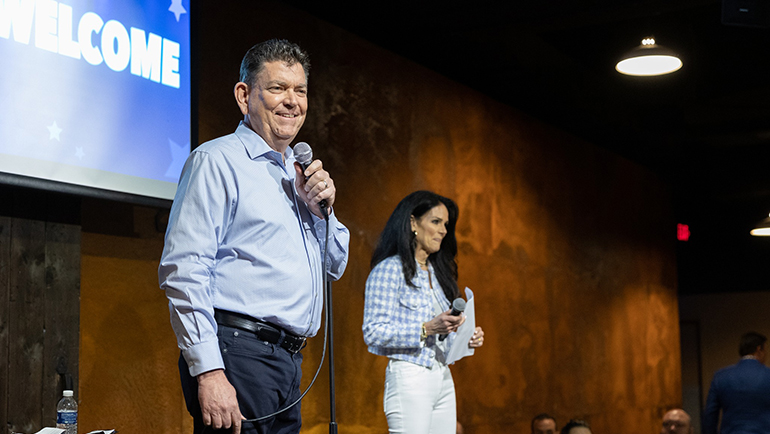DETROIT – It may not be considered a “party school,” yet nobody’s naïve enough to think that substance use isn’t occurring on Wayne State University’s campus.
“Though we’re mostly a commuter school, it is still the case that there’s substance use happening all around,” said Jeff Kuentzel, Ph.D., director of Counseling and Psychological Services. “It really comes down to the culture of the campus.”
According to research, approximately 4% of college campus populations in the United States meet the criteria for substance use disorder or are in recovery. For Wayne State, that means more than 900 students are likely in crisis and would benefit from a collegiate recovery support network on campus.
This is why Kuentzel and others in the School of Social Work are grateful for a recent gift from a local foundation whose mission is to combat substance use disorder.

Wayne State has received a $55,000 grant from the Jamie Daniels Foundation, which is funded in partnership with the Children’s Foundation. The grant will help to establish the university’s first Collegiate Recovery Program.
“Over the years, we have heard from students that Wayne State needs a collegiate recovery program. We never had one,” Kuentzel said. “I have some connections around campus of like-minded individuals in the School of Medicine and in the School of Social Work — these are researchers and clinicians. So, we put together a proposal last year and it was funded.”
More than 150 universities and colleges across the nation are supporting students in recovery from addiction. Wayne State joins eight other Michigan colleges and universities with collegiate recovery programs — including Central Michigan University, Ferris State University, Michigan State University, Mid-Michigan College, Oakland University, Olivet College, University of Michigan and Washtenaw Community College — that receive funding from the Jamie Daniels Foundation.
In 2018, Ken Daniels and Lisa Daniels-Goldman established the Jamie Daniels Foundation in memory of their late son, Jamie, who was 23 years old when he died from an overdose while in a treatment facility in Florida.
According to Jamie Daniels Foundation Executive Director Chris Perry, substance use disorder affects 40 million Americans each year, with 90% of those individuals engaging with drugs or alcohol before their 18th birthday — yet another reason why collegiate recovery programs are crucial.
“Administrators and students can share their struggles and experience, and they will be able to have camaraderie,” Perry said. “They’re also learning how to manage their substance use disorder with the tools and skill sets that they will need to move forward.
“They are acknowledging now and recognizing that addiction is something that you have to give up everything for, and recovering is something you have to give up one thing for,” Perry continued. “And that is so powerful.”
As Kuentzel observed, most of the program’s focus will be on younger students, but Wayne State’s commuter community can present a unique set of issues.
“The first image that comes to mind for a college student who is drinking too much is a 19-year-old, but we have many students who are 30 and 40 years old,” he said. “They’ve had a whole adult life where maybe they ran into some trouble with substance use, so we’re going to welcome them, too.
“It’s a big extension of the 12-step approach,” Kuentzel continued. “For some people, that’s all they need — to go to 12-step meetings — to get support. But we’re going to provide a supplement to that that’s more fun-oriented, education-oriented, and of course, there will be a lot of presentations and outreaches around campus because awareness is very big in trying to prevent substance use as a public health problem.”
Kuentzel will oversee the new campus initiative, but not as a Counseling and Psychological Services-affiliated program.
“It is not a clinical service at all,” he said. “It’s more of a peer support service, but since the grant started in January, we’re really feeling some time pressure to hit the ground running as soon as the coordinator is hired.”
The foundation’s support will allow Wayne State to hire a part-time coordinator and an hourly student assistant as the program seeks to support, educate and provide resources for students along their recovery journey.
“I don’t think we will be starting out with a ton of physical space, but the dean of students is going to help find some space in the Student Center Building where employees will be housed,” Kuentzel said. “They will have a small office, but available to students will be a hang-out space where they will never have to worry about having to refuse substances.”
